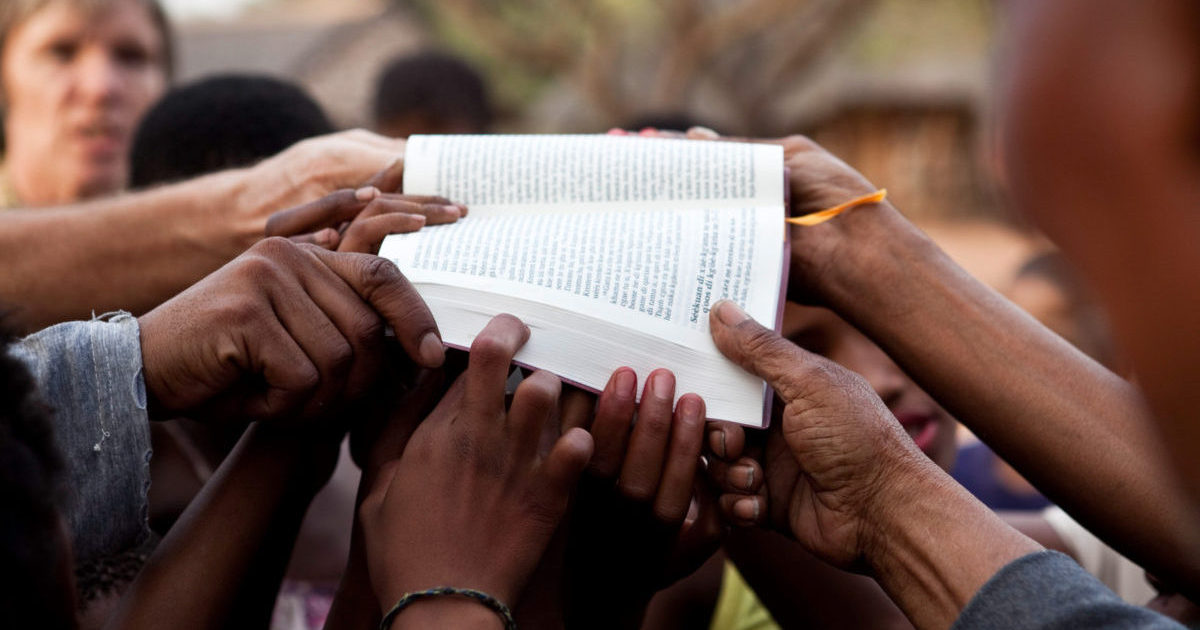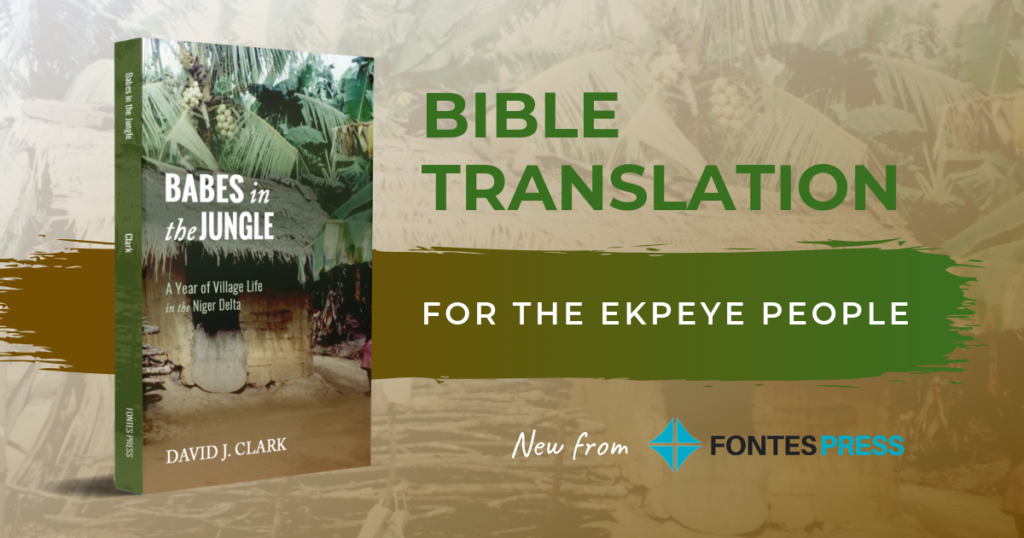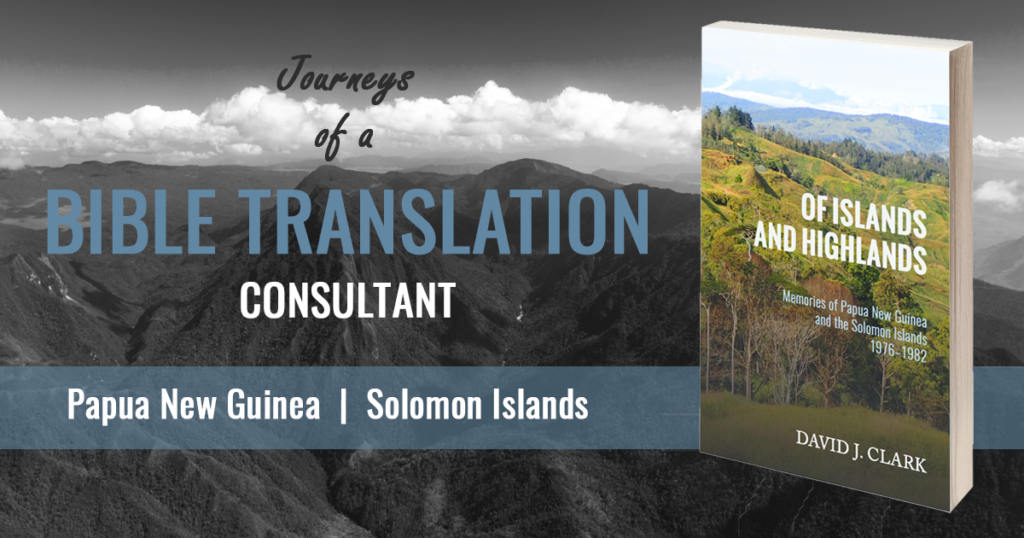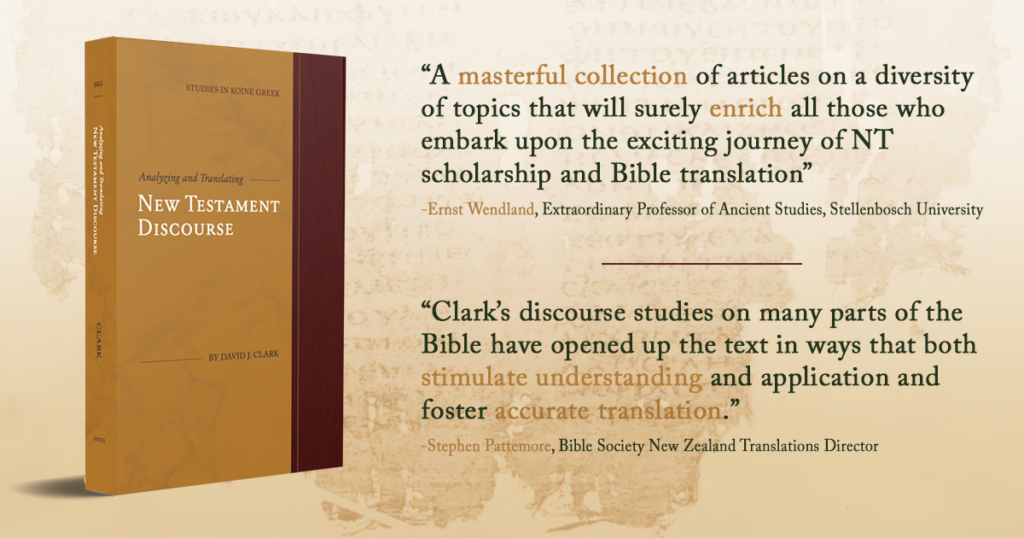
In December 2017, I struck up a friendship with a retired Bible translation consultant. He was contributing to a forthcoming volume I’m editing that provides a discourse analysis of every NT writing (Discourse Analysis of the New Testament Writings [Fontes, forthcoming]). He shared with me his four decades of Bible translation consulting work, first with UBS for 20 years, then on a volunteer basis with other organizations. My conversations with David Clark were instrumental in getting me on the path to joining the Bible translation movement.
The main reason he was instrumental was that he was not just a missionary and not just a scholar. He was both, and he did both well. I dare say that his work in each area improved his work in the other. His insights from linguistics field work made him a more insightful and down-to-earth scholar. His academic work ensured that he had a mind for detail and clear reasoning. One without the other would not be nearly as helpful as he has been.
David’s first stint in the field was in the Niger delta, spending a year with the Ekpeye people group in 1965-1966. He brought his wife and his sixteen month old daughter. His job was to analyze the Ekpeye language and to assist with efforts to create a writing system, ultimately for the purpose of Bible translation. He records this year in his Babes in the Jungle: A Year of Life in the Niger Delta (Fontes, 2019), which gives the reader a detailed portrait of village life and linguistic problems that arise in Bible translation work. David also writes with a delightful British wit that keeps you chuckling throughout the narrative. Eventually, David completed his dissertation on the Ekpeye language at the London School of Oriental and African Studies.
His first extended assignment was with the United Bible Societies in Papua New Guinea and the Solomon Islands. He spent six years there, consulting on dozens of projects on various “islands and highlands,” as his memoir is called (Of Islands and Highlands: Memories of Papua New Guinea and the Solomon Islands [Fontes, 2019]). His work was fraught with inefficiencies, mostly because of the difficulty of travel, especially flying. But even in the midst of his busy schedule and traveling, he was able to find time to crank out a few articles for The Bible Translator journal based on his field work. He was also able to devote as much time as he could to his co-authored UBS Handbook on Obadiah, Jonah, and Micah. David allowed his passion for getting Bible to the Bibleless to fuel his scholarship, and the result was practical scholarship integrating linguistics and exegesis for the purpose of missions.
David spent decades more serving in the Bible translation movement, both vocationally and as a volunteer. But what remains so impressive about his integration of academic work is the quality of his biblical scholarship. According to Stephen Pattemore, the current Executive Editor of The Bible Translator, David was probably the most prolific contributor to the journal in its history.
Among his biblical essays are a variety of studies on the New Testament, now published together in Analyzing and Translating New Testament Discourse (Fontes, 2019). Using his own method that is linguistically informed but oriented toward Bible translation, David produced discourse analyses of Matthew, Luke’s Sermon on the Plain, Titus, Ephesians, 1 and 2 Thessalonians, Jude, and 3 John. The DA of Matthew is 100 pages, and despite being published in the 1980’s, it remains unfortunately neglected until now. Having researched myself various modern works on Matthew’s structure, I can attest that David’s analysis holds up, and in fact is even superior to many works in its basic structural analysis. The volume also includes three essays on the phrase “truly (truly) I say to you” as a discourse marker in the Gospels, and three essays on displaced vocatives in the New Testament and their socio-linguistic significance.
David Clark embodies the Bible translator (or more broadly, missionary) as scholar. He has been incredibly prolific. He is competent in multiple disciplines. He has a heart for the Bible and the Bibleless. He was dedicated to his family, as is evident from his memoirs. Even now, retired in his 80’s, he continues to write, edit, and correspond with others to help them in any way he can.
I used to wonder if my scholarship would dissolve into non-existence if I entered the mission field. Then I met David Clark, and I learned that my scholarship could actually be better informed, more helpful to the kingdom, and perhaps even more voluminous if I did give my life to missions. And indeed I have, now serving with Wycliffe Bible Translators.
Thank you, David!




